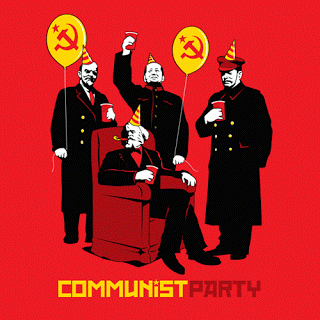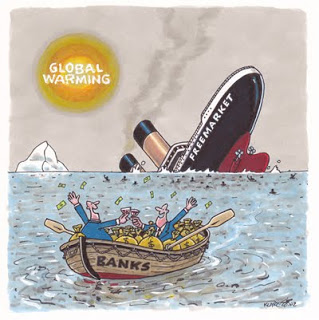Dredging the internet for articles addressing the question “are Lenin’s ideas relevant today”, the name of US activist and academic and Paul Le Blanc comes up a lot.
He has written two books that address this issue, 1989’s “Lenin and the Revolutionary Party” and “Marx, Lenin, and the Revolutionary Experience” in 2006, and these have been widely referenced and reviewed, particularly by socialists who, like Le Blanc himself (and UNITYblog) place themselves in the Trotskyist tradition.
In addition to this article, there’s an interview with Le Blanc from Monthly Review and a statement from him about why he decided to join the International Socialist Organization last year.
This article was published on the Canadian website Socialist Voice on June 25, 2008, the comments there are also worth reading.
Lenin and the revolutionary party today
by Paul Le Blanc
Paul Le Blanc was a guest speaker at the “Socialism 2008” conference of the International Socialist Organization in Chicago, June 20, 2008. This article is based on his talk.
We are focusing here on someone generally acknowledged to have been one of the greatest revolutionary theorists and organizers in human history: Vladimir Ilyich Ulyanov, whose intimates knew him affectionately as “Ilyich,” but whom the world knew by his underground pseudonym — Lenin. He was the leader of the Bolshevik wing of the Russian socialist movement, and this revolutionary socialist wing later became the Russian Communist Party after coming to power in the 1917 workers and peasants revolution.
For millions Lenin was seen as a liberator. Appropriated after his death by bureaucrats and functionaries in order to legitimate their tyranny in countries labeled “Communist,” he was at the same time denounced for being a wicked and cruel fanatic by defenders of power and privilege in capitalist countries — and with Communism’s collapse at the close of the Cold War it is their powerful voices that have achieved global domination. But the ideas of Lenin, if properly utilized, can be vital resources for challenging the exploitation of humanity and degradation of our planet.
There are Marxist-influenced democratic socialists who would argue that “whoever wants to reach socialism by any other path than that of political democracy will inevitably arrive at conclusions that are absurd and reactionary both in the economic and political sense.” In fact, these are the words of Lenin himself. Many critics of Lenin have pointed to his repressive policies of 1918-1922, when the early Soviet republic was engulfed and overwhelmed by multiple crises, accusing him of being the architect of the Stalinist totalitarianism of later decades. Much of my recent book Marx, Lenin, and the Revolutionary Experience (Routledge 2006) is devoted to disproving this grotesque distortion. Contrary to the claims of his detractors, Lenin’s writings reveal a commitment to freedom and democracy that runs through his political thought from beginning to end. They also reveal an incredibly coherent analytical, strategic, and tactical orientation that has relevance for our own age of “globalization.”[1]
In my remarks today I would like to do three things. First, I want to touch briefly on what I think are essentials of Lenin’s thought. Second, I want to touch on a couple of major problems that have cropped up in efforts to build organizations aspiring to be Leninist. Third, I want to talk about the necessity of building such an organization.


















